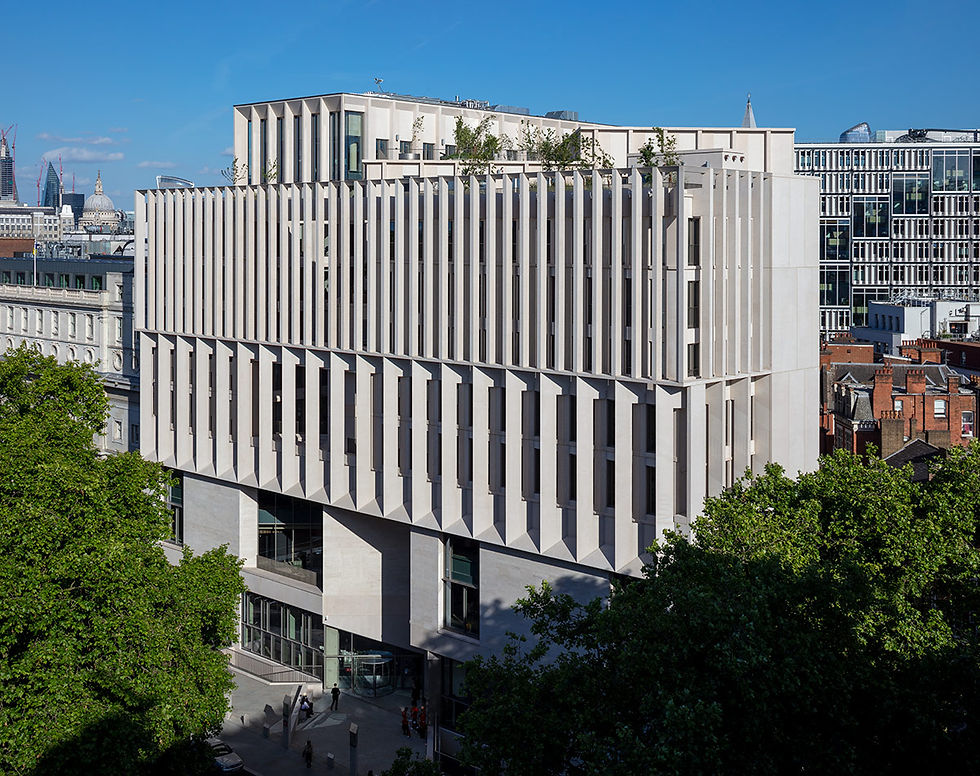Director of Estates at the London School of Economics joins our Retrofit and Renewal discussion event

Image Julian Robinson. courtesy of LSE
Future Cities Forum is delighted that Julian Robinson, Director of Estates at the London School of Economics and Political Science, will be joining our November forum. Julian is responsible for the development and implementation of Estates strategy, policy and performance. The LSE estate comprises 28 buildings, 11 halls of residence, 2 pubs and a 23 acre sports ground.
The Estates Division is responsible for development and implementation of the LSE's Estates Strategy, providing world class buildings and facilities for teaching, learning and research.
Back in February 2024, LSE received funding of £2.7m from Salix. As reported, these funds will be used to take a whole building retrofit approach to the decarbonisation of two campus buildings: Connaught House (CON) and Lionel Robbins Building (LRB).
This project involves the removal of three boilers at ‘end of life’ in LRB and three boilers in CON. These will be replaced by air source heat pumps in each building. It is estimated that this project will reduce greenhouse gas emissions by over 400 tCO2e per annum.
LSE has an ambitious target of reaching net zero greenhouse gas emissions by 2030. The projects that will be carried out as part of this application will not only move the organisation a step closer to achieving that goal but will serve as a platform to retrofitting other buildings across the estate.
This project is for the replacement of existing fossil fuel heating and domestic hot water plant with a low-carbon air-source heat pump system. The options appraisal for both buildings show that building fabric is sufficient to the point where it would be uneconomical to improve the level of insulation and/or glazing.
The buildings have undergone routine replacement to light emitting diode (LED) with up to 90% of the areas surveyed already having new fittings in place. LRB was retrofitted to LED in 2012 using conversion kits - LED technology has moved on such that new battens can achieve a 50% saving on the current 18W fittings.
This project will also seek to offset some of the increased electrical demand from the air source heat pump with roof-mounted solar PV on both buildings - including the replacement of some old and inefficient panels on LRB (savings account for difference between old technology and new technology).
This will increase existing capacity in LRB and add new capacity in CON. Projects for both buildings are at RIBA Stage 2 of feasibility and therefore LSE will take advantage of a planning year to finalise mechanical and electrical detailed design using existing mechanical and electrical contractors on a call off framework. The results of the project will see the decarbonisation of both buildings in line with LSE's ambitions to reach net zero by 2030 and will pave the way for a wider programme of estates decarbonisation.
The total value of the grant funding is projected to be £2,697,890 and project duration of approximately 18 months, completing Winter 2025.
The proposed re-use/refurbishment and extension project will house the Firoz Lalji Institute for Africa, the Data Science Institute, Executive Education, the Departments of Mathematics and Statistics, and an LSE Agora that will help to connect and engage the LSE global community.
Image below courtesy of Nick Kane: the award-winning Marshall Building, the latest addition to the LSE campus - completed in 2022 by Mace and designed by Grafton Architects

Comentários